- This interview was published in RAIL 850 (published April 11-April 24 2017).
April 1 was not only a significant date in the history of sub-national transport body Transport for the North (TfN), it was of equal importance for both Northern and TransPennine Express.
That’s the date when the operators commenced their respective franchises exactly two years earlier. In the case of TPE, the franchise will last for at least seven years, following FirstGroup’s successful bid which has secured the operator a key role in helping to deliver TfN’s aspirations to transform the regional economy.
Led by FirstGroup’s former commercial development director for rail Leo Goodwin, there was never any doubt surrounding the remit handed to him and his team at TPE when they embarked on this journey in April 2016.
He tells RAIL: “It’s all predicated on the concept of mobility of labour, and how efficiently it can access employment opportunities that are spread across the North. The North fares less favourably in this than London and the South East, and if you can get the North’s economy to the point where someone who lives in Manchester wants to take a job in Liverpool or Leeds, then that will support a more productive and efficient labour market.
“This, ultimately, generates more prosperity for people living in the North, and transport has an enormously important role in all of that.”
As reflected by TPE’s franchise commitments, this is to be achieved by delivering an ambitious combination of new trains, additional routes and enhanced services across its network. Not only will this substantially boost capacity and increase travel opportunities, it will also result in reduced journey times, improved passenger comfort, and help bring an end to overcrowding between some of the UK’s most populous cities.
TPE was quick off the mark to deliver on these commitments, and within just a month of the official franchise launch it announced an order for 19 125mph (140mph-capable) five-car bi-mode trains from Hitachi Rail Europe (RAIL 798), to be maintained at HRE’s new £80 million depot in Doncaster.
These trains are from the same AT300 family as the Class 802s currently on order for Virgin Trains East Coast and Great Western Railway. They will enter traffic in December 2019, offering 161 more seats on trans-Pennine services than are fitted on TPE’s current diesel fleet of 51 three-car Class 185s.
This was swiftly followed by a £230m order for 126 new vehicles from CAF, comprising 12 new five-car Class 397 electric multiple units (EMUs) and 13 sets of five-car Mk 5 coaches (RAIL 798), with one spare coach.
The Mk 5s will be hauled by Class 68s, marking the return to trans-Pennine routes of locomotive-hauled trains, which were removed by British Rail in 1991.
These sets will have 287 seats compared with the 181 fitted to the ‘185s’, while the new EMUs will have 286 compared with the 206 contained within each of the ten four-car Class 350s currently operated by TPE that they will replace.
The ‘350s’ are due to be withdrawn in April 2019 when the ‘397s’ enter service, while 29 Class 185s will be retained by the operator. The remaining 22 will be cascaded following the introduction of the locomotive-hauled sets of Mk 5s by the end of this year, and of the AT300 fleet during 2019.
In the meantime, all 51 ‘185s’ are currently being upgraded by Siemens to ‘as new’ condition, in a £32m deal that will end in July and which includes WiFi provision, refitted toilets, and the installation of USB and plug sockets, LED lighting and bigger tables.
The new trains will enable TPE to offer 13 million additional seats each year by 2020, in conjunction with the introduction of new routes and an expanded timetable. That equates to 10,000 more seats into cities in Scotland and northern England at peak times, and an 80% increase from when the franchise began.
Says Goodwin: “For us, £500m worth of new trains is going to allow us to more than double the number of seats we currently have out on the network. Our network is very constrained at the moment, and we’ve seen tremendous passenger volume growth in the last decade.
“We need to get more seats out there to satisfy demand today, and also to provide room for growth in the next few years which we think is going to be very important for the economy of the north of England going forward.”
He adds: “We’re going to have the most modern fleet of trains in the industry, as we bring three new fleets into service. The first trains will be here in the next couple of months on the network for testing, and we’ll be rolling them out into passenger service by the end of the year.
“We’ll be accepting a new train nearly every week up to the second half of 2019, at which point we’ll have all 220 new carriages out there and into traffic.
“I think the customers are going to be really pleased with the end product. It’s going to mark a real transformation for our business and standard of service we’re able to offer.”
To help accommodate the new trains, TPE is investing £18m in stations, including £6.8m to extend platforms at 13 locations. £1.4m is being invested in retail development at Hull Paragon, and £2.8m in improved customer information systems across its network.
As for additional services, TPE has already commenced a stepping-up of the timetable. By 2020 it will have delivered a 55% increase in the total number of services it operates between the seven largest cities in northern England and Scotland. This includes 24% more on Saturdays and 52% more on Sundays, as TPE moves towards offering a standardised weekday service on all seven days of the week.
This process began in December 2016, with Manchester Airport-York services being extended to Newcastle. In May, this route will increase to two trains per hour (tph) once TPE services begin using the £85m Ordsall Chord in Manchester, and will also mean that service frequency between Manchester and Leeds will have risen to 6tph.
In December, new direct services will commence between Liverpool and Glasgow, while a year later TPE services to Newcastle will be extended to Edinburgh, meaning that 16 additional trains will run each day from Glasgow and Edinburgh to Manchester compared with April 2016.
Other plans from TPE include extending mobile ticketing across all of its routes later this year, offering improved on-board catering, and complimentary on-board entertainment on all its trains by July 2018 following the launch of its ‘Exstream’ media streaming service for internet-connected devices in October 2017.
“In May this year, we have a new timetable coming into operation adding multiple services to the network,” says Goodwin.
“This will cut journey times, so passengers will see a rolling programme of improvements from this point forward. We will offer 2tph from Manchester to Newcastle, and from Liverpool to Manchester we will operate both of our hourly services via the faster Chat Moss route, which knocks close to a quarter of an hour off the current journey time to just a little over 30 minutes.”
Looking beyond the confirmed introduction of new trains and additional services by 2020, further capacity increases will be increasingly reliant on the construction of new or upgraded infrastructure.
Topping this list is the Trans-Pennine Route Upgrade (TPRU) between York and Manchester, to which Secretary of State for Transport Chris Grayling committed £3 billion on March 2 (RAIL 848).
Network Rail has begun producing detailed designs for a number of options that would improve reliability, journey times and capacity on the route, although the final scope and delivery timetable for this scheme is not yet known.
Question marks remain over whether this will include electrification of the route or the installation of digital signalling technologies, but Goodwin says that TPE will be well equipped to derive maximum benefit whatever the outcome, given the flexibility offered by its new trains.
“There’s a lot of investment being delivered in the region via Great North Rail Project, including the fantastic Ordsall Chord which our trains will begin running over in just over a month’s time. We also have further electrification taking place , and the Trans-Pennine Route Upgrade which was announced by the Secretary of State in March and which we very much welcome.
“NR has looked at the benefits of further electrification set against the disruptive access that would be required to deliver that. There are difficult choices to be made combining the funding of the wires, and we need to make sure that alongside the enhancement works, the scheme still allows for a good level of service to be provided in the meantime.
“NR has also looked at how DR technologies could be employed on the corridor. And while they and the DfT are still evaluating options, I think the final scope will include some DR elements as it moves forward.
“When deciding what trains to buy, we took the decision to build in lots of passive provision for infrastructure upgrades so that our trains are not just good for the here and now, but also the future by having a mixture of bi-mode trains and locomotive-hauled trains that could be made all-electric depending on their intended deployment.
“TPRU is a project we’re very much in favour of because it could cut a quarter of an hour off journey times between Manchester and York, and would allow us to utilise some of the high-speed capabilities of the new trains and give additional capacity on the line.
“Right now, capacity on that line is a real constraint for ourselves and Northern, and TPRU will go a long way to addressing that.”
With infrastructure decisions still pending, Goodwin is focused on working in close partnership with TfN to continue delivering service improvements through the franchise, while also harnessing the increased powers and autonomy handed to it on April 1.
This includes a legal obligation for the Government to formally consider recommendations made to it by TfN, and a greater ability to take forward initiatives such as smart ticketing, which will be delivered in four phases across the next four years.
TfN has also assumed the role of co-managing (with the DfT) both the TPE and Northern franchises, following its absorption of Rail North on April 1. Goodwin is a keen advocate of this transfer of powers from Whitehall, plus the strategic role that TfN is now empowered to fulfil.
He also welcomes the new franchising arrangements: “We’re enormously supportive of the devolution journey the North is on now, and I think a good start was made in 2016 when two ambitious franchises were let predicated on high levels of investment and service improvements for passengers.
“What we’re seeing now is further powers being drawn into the North, and organised in a way that can align those important transport decisions to the people who get the benefit of them. That is to be welcomed.
“There have been some practical changes for us now that our contract is managed by a team based in Leeds, and not London as under the previous franchise arrangement. We’re now working with a client organisation based alongside us in the North, which I think over time will aid quicker and more locally nuanced decisions.”
He adds: “Procuring the new franchises was the first test for devolution, and that’s been met. It’s absolutely right to set out a long-term set of ambitions and a position statement on investments that can help us get there, which is exactly what TfN’s draft Strategic Transport Plan sets out to do.
“Having TfN in place and thinking in the medium and long term is a good thing, and allows us to focus on the more pressing decisions that have to be taken in the near term against the overall strategy of priorities for the North.”
Goodwin concludes with a message to those who would like to see devolution happen faster and deeper across the north of England than at present.
Unlike other devolved franchising authorities such as Transport for London and the Scottish Government, TfN has no revenue-raising ability of its own, nor full independence in managing and awarding franchises from the DfT.
He believes that a more incremental transfer of power and responsibilities to TfN will ensure that the delivery of infrastructure and service level improvements can be sustained in the long term. He is also enthusiastic about the more immediate changes that passengers are on the cusp of experiencing.
“It needs to be a continuous plan of investment and expansion, and you only get there through having a whole series of building blocks. The franchises provide some of that first level of building blocks, and there’s an opportunity through the TPRU to provide the next layer of improvement within the next few years.
“We’ve got a good story to tell over the next few years with the plans we have, and we’re at an exciting point in 2018 when those plans begin to become a reality. Passengers will shortly get to see investment being delivered and new trains coming out of the factory, to provide those new journeys that will give access to well-paid jobs in neighbouring cities or great leisure opportunities through better connectivity.”

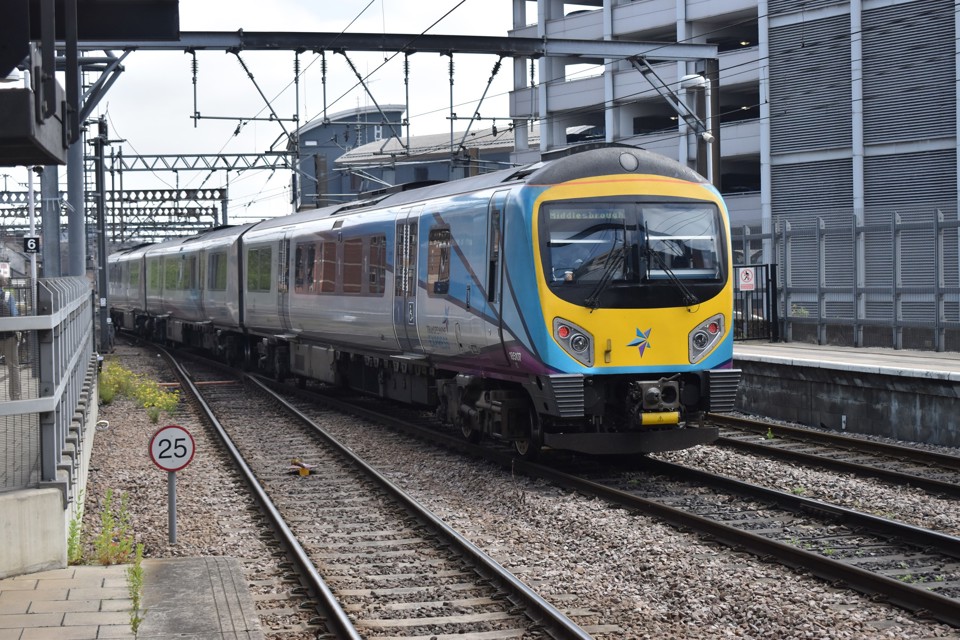

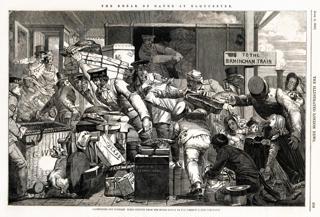
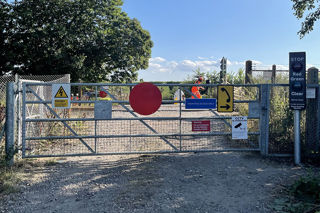
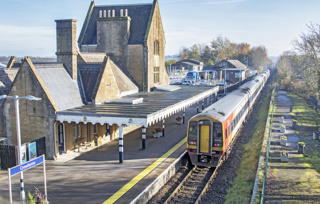
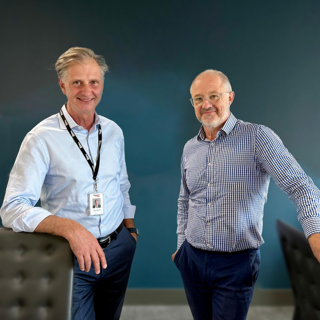











Login to comment
Comments
No comments have been made yet.